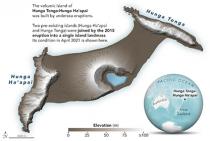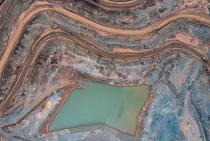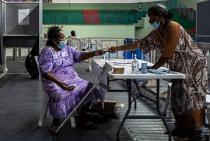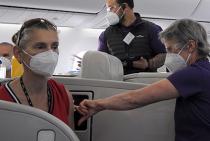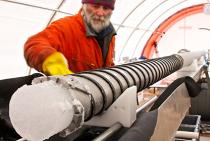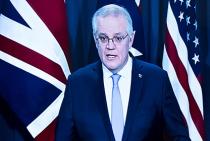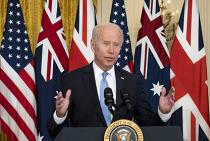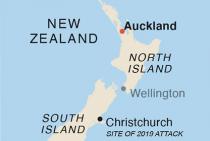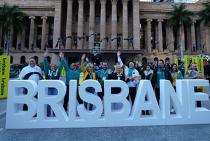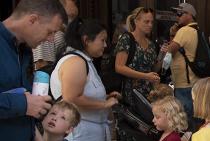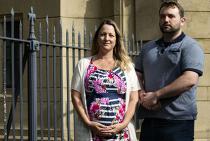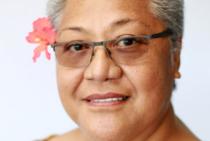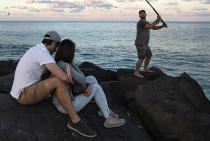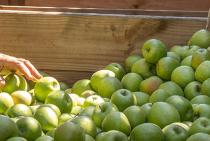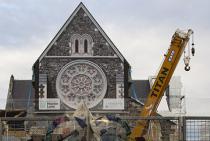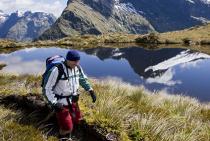The New Zealand Defence Force will support Pacific Island partners through a range of maritime security and other support in the next three months, NZ Minister of Defence Peeni Henare announced today. The NZDF, MFAT and Ministry for Primary Industries are partnering with defence and fisheries officials in Tonga and other PI countries.
You are here
Results for Pacific
Friday 22 July 2022
 Premium content
Premium content
Wellington, New Zealand
Thursday 10 February 2022
1 comment
NASA, USA
When a volcano in the South Pacific Kingdom of Tonga began erupting in late-December 2021 and then violently exploded in mid-January 2022, NASA scientist Jim Garvin and colleagues were unusually well positioned to study the events. Ever since new land rose above the water surface in 2015 and joined two existing islands, Garvin and an international team of researchers have been monitoring changes there. The team used a combination of satellite observations and surface-based geophysical surveys to track the evolution of the rapidly changing piece of Earth. Now all of the new land is gone, along with large chunks of the two older islands. Story, pictures and links - NASA Earth Observatory.
Friday 31 December 2021
Goro, New Caledonia
New York Times reporting: Goro, is the largest nickel mine on a tiny French territory suspended between Australia and Fiji that may hold up to one-quarter of the world’s nickel reserves. It also poses a critical test for Tesla, the world’s largest electric vehicle maker, which wants to take control of its supply chain and ensure that the minerals used for its car batteries are mined in an environmentally and socially responsible fashion. Because of its nickel industry, New Caledonia is one of the world’s largest carbon emitters per capita. And mining, which began soon after New Caledonia was colonized in 1853, is intimately linked to the exploitation of its Indigenous Kanak people. The legacy of more than a century of stolen land and crushed traditions has left Goro’s nickel output at the mercy of frequent labour strikes and political protests.
Monday 13 December 2021
Nouméa, New Caledonia
New York Times reporting: New Caledonia will not mark the new year by becoming the world’s newest country. In a referendum held Sunday, voters rejected independence overwhelmingly, with 96% electing to stay part of France, according to provisional results released Sunday by the French High Commission in New Caledonia. The vote on the Pacific island territory comes as France’s president has prioritized shoring up the country’s international profile, seeing its military as a bulwark against China. A large portion of the Kanak pro-independence bloc boycotted Sunday’s vote.
Wednesday 24 November 2021
Auckland, New Zealand
New York Times Reporting by Natasha Frost. New Zealand plans to allow most fully vaccinated travelers into the country by the end of April without a mandatory hotel quarantine, as it slowly emerges from what has been one of the world’s longest lockdowns.
Thursday 7 October 2021
New York, USA
New York Times reporting: When it comes to records of human history, do not overlook Earth’s only uninhabited continent. Researchers recently found soot preserved in Antarctic ice that they have linked to fires set in New Zealand by Māori settlers, the islands’ first human inhabitants. Finding evidence of conflagrations thousands of miles away is a dramatic example of early humanity’s environmental impact, the team suggests. These results were published Wednesday in ‘Nature’.
Friday 17 September 2021
 Premium content
Premium content
Sydney, Australia
New York Times News Analysis: When Scott Morrison became Australia’s prime minister three years ago, he insisted that the country could maintain close ties with China, its largest trading partner, while working with the United States, its main security ally. “Australia doesn’t have to choose,” he said in one of his first foreign policy speeches. On Thursday, Australia effectively chose. Following years of sharply deteriorating relations with Beijing, Australia announced a new defense agreement in which the United States and Britain would help it deploy nuclear-powered submarines, a major advance in Australian military strength.
Friday 17 September 2021
 Premium content
Premium content
Paris, France
New York Times Reporting: President Joe Biden’s announcement of a deal to help Australia deploy nuclear-powered submarines has strained the Western alliance, infuriating France and foreshadowing how the conflicting U.S. and European responses to confrontation with China may redraw the global strategic map. The Biden administration appears to be upping the ante with Beijing by providing a Pacific ally with submarines that are much harder to detect than conventional ones.
Monday 6 September 2021
Guam, Pacific Islands
Just as tourists were starting to return to Guam, the island has reported a record number of new COVID cases, a surge that is filling up hospital beds and dashing hopes of an economic recovery despite a successful vaccination campaign.
Monday 6 September 2021
Auckland, New Zealand
New York Times reporting: A man who wounded seven people in a West Auckland supermarket and was shot dead by police had been under surveillance for months. The New Zealand government had been trying to expedite counterterrorism legislation in Parliament to give law enforcement officials a legal way to take him back into custody.
Thursday 22 July 2021
 Premium content
Premium content
Tokyo, Japan
New York Times reporting: As the Summer Olympics stumbled to an unsteady start on Wednesday, the International Olympic Committee took a big step toward crystallizing its long-term future by voting to officially select Brisbane, Australia, as host of the Summer Games in 2032.
Wednesday 7 July 2021
Sydney, Australia
New York Times reporting: Three days after the emergence of a rare COVID-19 case in Sydney, around 40 friends gathered for a birthday party. Along with cake and laughter, there was a hidden threat: One of the guests had unknowingly crossed paths with that single COVID case, an airport driver who had caught the Delta variant from an American aircrew. Two weeks later, 27 people from the party have tested positive. And the seven people at the gathering who were not infected? They were all vaccinated. By Damien Cave.
Wednesday 26 May 2021
 Premium content
Premium content
Wellington, New Zealand
New York Times reporting: More than 50,000 New Zealanders have flocked home during the pandemic, offering the country a rare opportunity to win back some of its best and brightest. The question is how long the edge will last. The Ardern government has announced no specific measures aimed at retaining citizens who return. But it is using its border shutdown as a moment to “reset” its immigration priorities, saying last week that it would loosen controls for wealthy investors while curtailing temporary visas for the migrants the country has long relied on as citizens moved away.
Tuesday 25 May 2021
 Premium content
Premium content
New York, USA
New York Times reporting: Fiame Naomi Mata’afa walked toward Samoa’s beehive-shaped Parliament House on Monday morning intending to be sworn in as the first female prime minister in the Pacific Island nation’s 56-year history. What she and her fellow party members found instead were locked doors. The speaker of parliament had issued orders to keep them out. And so deepened a constitutional crisis that has convulsed this long-stable nation and thrown into doubt whether Mata’afa, whose party won the April 9 election, would actually take office.
Thursday 20 May 2021
 Premium content
Premium content
Melbourne, Australia
New York Times reporting: When Australian officials announced last week that the country was unlikely to fully reopen its borders until mid-2022 because of the coronavirus, the backlash immediately began building. Critics warned that Australia risked becoming a “hermit nation.” Members of the Australian diaspora who had been struggling to return home for months saw it as another blow. The announcement drew dire warnings from business, legal and academic leaders. But polls show that keeping the borders shut is a popular idea.
Thursday 4 March 2021
 Premium content
Premium content
Shepparton, Australia
New York Times reporting: With the Australian borders closed to the backpackers who do much of the country’s farm labour, the coronavirus pandemic has exposed the shaky labour foundation of the country’s agriculture industry, spurring calls for an immigration overhaul. Right now, farmers are contending with national borders that were closed in March 2020 and are unlikely to reopen until 2022.
Tuesday 23 February 2021
 Premium content
Premium content
Christchurch, New Zealand
New York Times reporting: First the houses and cars vanished. Fences, driveways and the other remaining markers of suburban life followed. Now, only stretches of green remain — an eerie memorial to two earthquakes that leveled Christchurch, New Zealand’s second-largest city, 10 years ago. The undulating expanse, which begins 2 miles from downtown Christchurch, was deemed uninhabitable after the quakes, the second of which killed 185 people on Feb. 22, 2011. The 8,000 properties it encompassed were bought by the government and razed, the remnants swept away.
Friday 19 February 2021
Sydney, Australia
New York Times reporting: A digitally savvy nation, Australia woke up Thursday to a shock on Facebook: the news was gone. The social network’s decision to block journalism rather than pay for it erased more than expected, leaving many outraged and debating what should happen next.
Tuesday 26 January 2021
 Premium content
Premium content
Sydney, Australia
New York Times reporting: In a major escalation, Google threatened Friday to make its search engine unavailable in Australia if the government approved legislation that would force tech companies to pay for journalism shared on their platforms. Australia’s assertive challenge to the online giants has placed it in the vanguard of a movement to bolster a traditional news media ecosystem that America’s trillion-dollar tech companies threaten with extinction. For Google and Facebook, their intense pushback has become a focal point of their global efforts to limit regulation, as governments around the world look to rein them in. Here’s a summary of the fight... By Damien Cave
Monday 7 December 2020
 Premium content
Premium content
New York, USA
New York Times reporting: Unilever New Zealand said it would begin a one-year experiment to allow all 81 of its employees to earn their full salaries while working one day fewer per week, a move the company said might actually boost productivity and improve employees’ work-life balance. Some business and productivity experts say the concept may finally get a serious look amid a pandemic that has altered how billions live and work around the globe.



